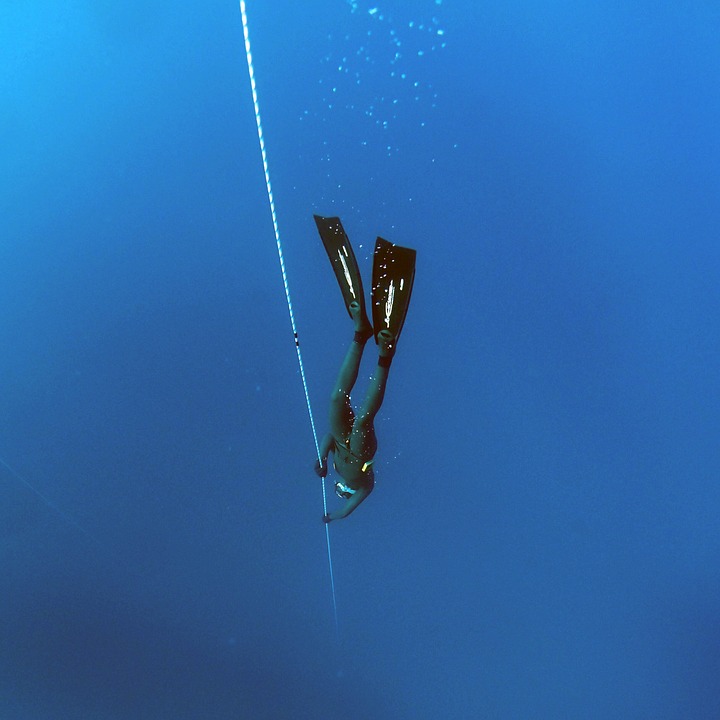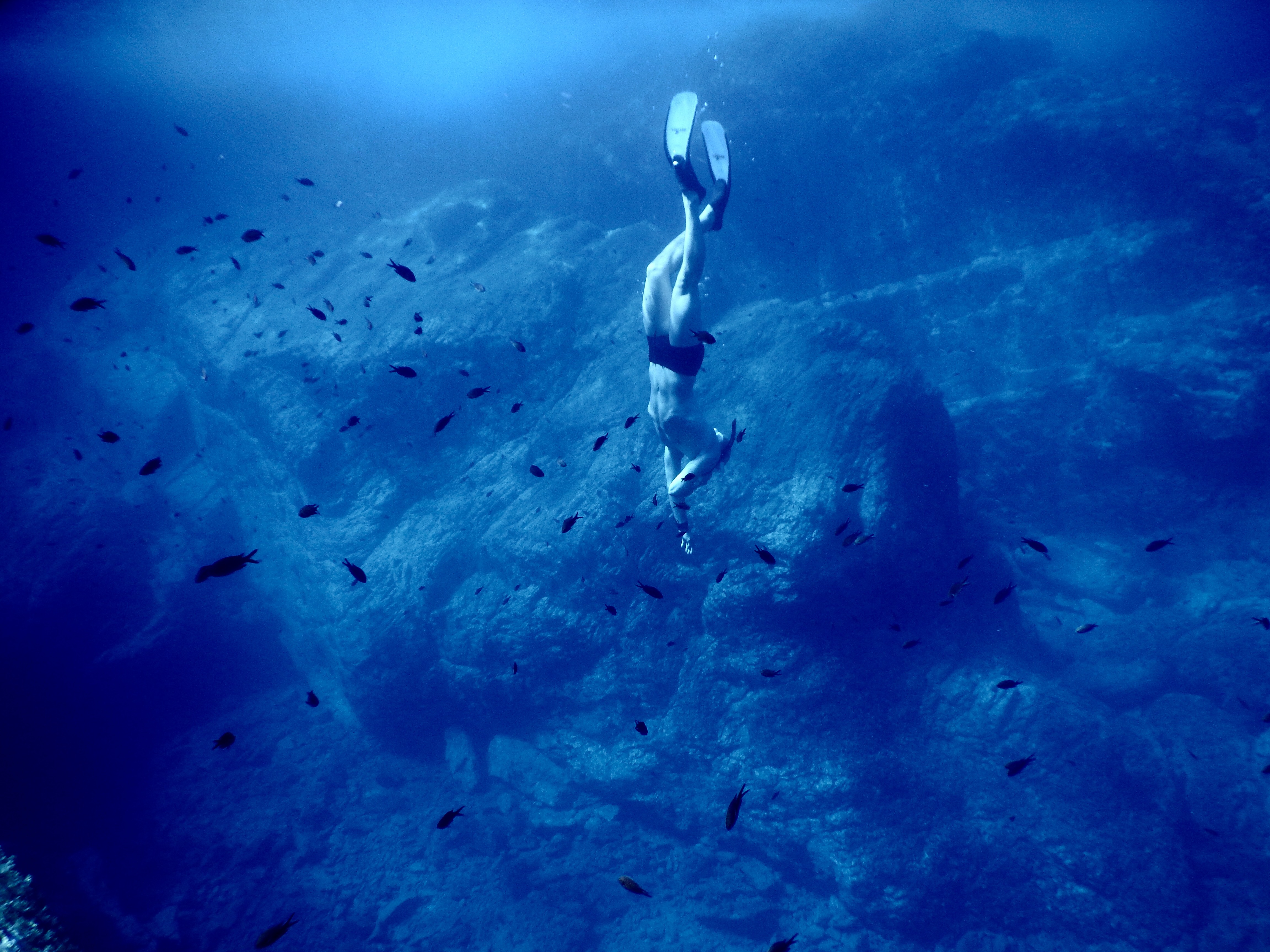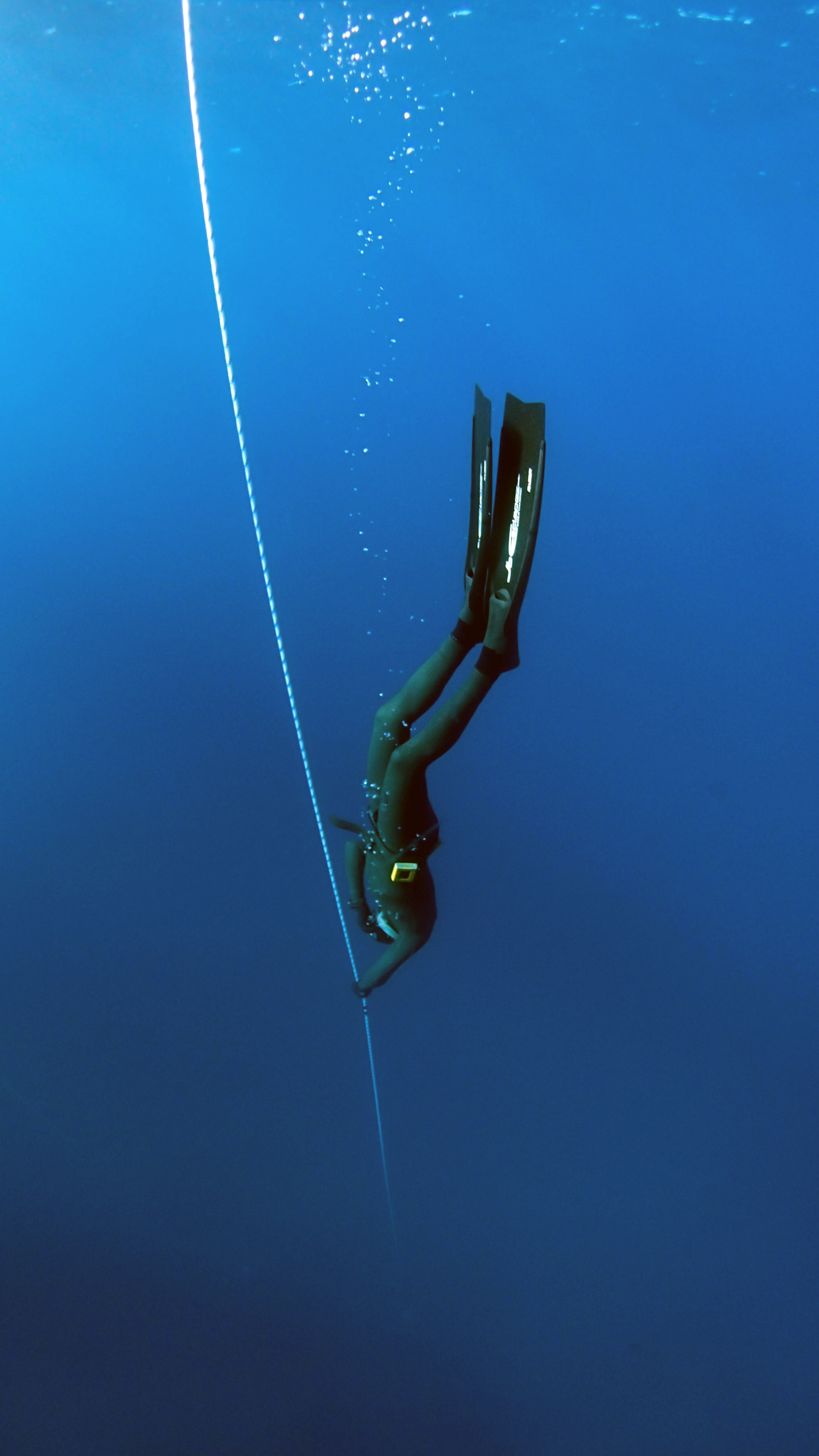What is Freediving? Everything You Need to Know
Freediving is one of the oldest forms of diving and has been used for centuries. Freediving is basically breath-holding under water and travelling as far as you can without having to surface for oxygen. Humans began freediving many years ago when they had to dive for food or rescue items that had been lost overboard. However, over more recent years, freediving has evolved into a competitive sport and enjoyable pastime.
What is freediving? If you’ve ever swam under the water and held your breath, you have experience to some degree what freediving is.
Whether you want to learn freediving as a competitive sport or you simply want to challenge yourself and push your body further than ever before, read on. In this article, we will be looking at what freediving is, how it works, and the different types.
How to Freedive

If you want to learn how to freedive, the best place to start is trying to hold your breath underwater for as long as you can and then using this number as a base figure to work from. Breath hold diving is essentially the beginning of freediving. The key to holding a single breath for longer underwater is to get into the discipline of taking slow, deep breaths. Take your time and breathe in for 5 seconds and then out for 10-15. Practice on taking more time to breathe out than you do to breathe in.
It is best to have a pulse of 80 beats per minute or less while you are practising in order to be ready for freediving. If you dedicate yourself to practicing, you will find that your pulse starts to slow over time and you will be able to dive to greater depths as your pulse adapts.
What is the Difference Between Snorkelling and Freediving?
At first glance, you may assume that snorkelling and freediving are one in the same. However, there are actually some pretty stark differences between the two. Snorkelling requires divers to remain on the surface of the water to breathe, and then holding their breath while they dive until they resurface. Whereas, freedivers remove their breathing apparatus before they descend and simply hold their breath for long periods of time.
What Gear Do You Need to Freedive?
You can free dive without the need for any specialist equipment. However, certain water conditions will require additional pieces of equipment. At Oyster Diving, we recommend that anyone who wants to go freediving wears a wetsuit as water temperatures drop significantly at lower depths. Deeper dives also require divers to wear a mask so that they can safely map out their route back to the surface.
What If I Can’t Hold My Breath?
One of the most common questions we get asked is, ‘what if I can’t hold my breath for a long time?’ The reason this is such a common question is that many people assume it means they can’t become a freediver. However, this is not the case. With the proper training you will learn breathing techniques that will help you hold your breath for longer and longer, until you can freediver for a surprisingly long amount of time.
Do I Need to Know How to Swim?
While you don’t need to have a lot of swimming experience, we do encourage aspiring freedivers to be confident and feel comfortable in the water. If you want to qualify as a PADI Freediver, you will need to comfortably swim 200 metres. You will also need to learn a number of different breath-holding techniques, some of which will involve building up your tolerance for swimming at depth.
The Earliest Recorded Freedivers
The origin of freediving can be traced back nearly 2,000 years. In fact, one of the earliest recorded instances of freediving was in Japan nearly 2,000 years ago when women used to tie weights to their bodies and dive to depths of 30ft wearing nothing more than a loincloth. You can read more about the incredible Ama Pearl Divers here.
The 6 Different Types of Freediving
Let’s take a look at the different types of freediving there are so that you can find the style that suits you best.
1. Constant Weight Freediving

Constant weight freediving can be done with or without fins and is a depth discipline. Many divers see constant weight freediving as one of the purest forms of freediving as divers descend into the water under their own weight.
2. Free Immersion Freediving
This type of freediving is one of the most well-known as it involves a depth of discipline. And what we mean by that is it involves a diver pulling down to the depths on a rope and pulling themselves back up again. This helps spare the body from using up oxygen too quickly as divers don’t have to use their legs to propel themselves forwards. Free immersion diving is also a great way for students to learn equalisation skills gradually.
3. Variable Weight Freediving
This freediving style is performed by adding extra weight to the diver so they can travel to extra depths and then return to the surface under their own steam. While variable weight freediving is not a competitive discipline, there are divers who have set world records in it.
4. No Limits Freediving
At its deepest, no limits freediving is arguably the most dangerous we have mentioned on this list. In no limits freediving, you use weights to take you as deep as possible, and then a buoyancy device to return you to the surface.
5. Static Apnea
Put simply, this is basically holding your breath for as long as possible while lying on the surface of the water. Static apnea is typically practised in a swimming pool and is considered one of the hardest disciplines to master simply because there is nothing to distract you from holding your breath. What’s more, many divers find it is easier to give up early because the surface if only millimeters away, rather than metres like it would be in the ocean.
Static apnea is a great all-rounder as it trains divers in their breath control, developing mental toughness, increasing confidence, and significantly developing breath control.
6. Dynamic Apnea
This type of freediving can be performed with or without fins and is usually carried out in a pool. Dynamic apnea is perfect for training divers who find it very difficult to equalise easily. Dynamic apnea helps divers enjoy freediving without experiencing issues of depth.
3 Reasons Why People Learn Freediving
 There are many reasons why people choose to learn freediving. However, modern freediving is popular for 3 main reasons:
There are many reasons why people choose to learn freediving. However, modern freediving is popular for 3 main reasons:
Recreational Freediving
Recreational freediving is purely aimed at the enjoyment factor. Many people enjoy the challenge of freediving and the effect it has on them mentally and physically. Recreational freediving allows you to explore the big blue at your own pace and enjoy the challenge of diving to new depths.
Freediving for Health and Fitness
Freediving has been practiced for many years as a form of anaerobic exercise used to improve your physical health and fitness. The physical demands of freediving are known to have a positive effect on the body, improving both physical health and our ability to maintain stress and be more aware.
Freediving Competitively
Competitive freediving has been rapidly growing in popularity. Competitive freediving focuses on the abilities of a freediver, challenging divers to not only achieve their personal bests, but to beat the records held by others.
Where to Freedive in the UK
While freediving isn’t necessarily the most well-known hobby in the UK, there are plenty of places you can go freediving. If you are a beginner, we would suggest heading down to the west coast where the waters are clearer and you’ll find it easier to learn. Cornwall is also a beautiful place to explore the joys of freediving.
Learn Freediving with Oyster Diving
Obviously, freediving is not something you should attempt to teach yourself or learn on your own. Freediving requires serious practical and physical training to help ensure you are comfortable in the water and develop proper deep breathing techniques.
Considering the many dangers of freediving (such as passing out), it is important to have a professional and experienced instructor to guide and support you. Fortunately, at Oyster Diving we have a team of specialist freediving experts who are available to train you in every aspect of freediving You will learn how to clear your snorkel, equalise pressure under the water, and manage in confined and open water levels.
Book Your Freediving Course Today
At Oyster Diving, we train divers throughout the UK in freediving. Whether you are new to freediving or you want to take your skills to the next level, we have a range of freediving courses you can choose from:
- PADI Basic Freediver course (you will learn basic freediving skills and breath-hold techniques).
- PADI Freediver Course (develop your knowledge and learn discipline and control).
- PADI Advanced Freediver (refine and improve your freediving skills).
Dive to new depths today and book your very own freediving course today. Our diving experts and freediving specialists are here to teach you everything you need to know about freediving. If you would like to find out more about our freediving courses, what they involve, and your next steps, visit our PADI freediving courses page and get in touch today!
